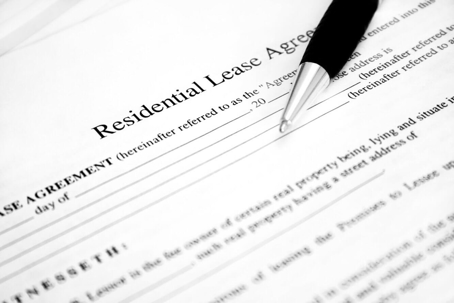Can I Sue a Tenant for Unpaid Rent When They Move Out?
The biggest challenges landlords are likely to face are dealing with a tenant who breaches a lease agreement, moves out without paying the rent or providing due notice, or falls back on their rent and remains in the unit. Landlords have a right to collect due rent, and in some cases, suing in a small claims court is a feasible legal option.
Can a Landlord Sue for Unpaid Rent Without Lease?
A landlord can sue a month-to-month tenant for moving out without notice and failing to pay rent for the remaining number of days on the tenancy. For example, if a tenant should provide a 30-day notice prior to moving out but moves out without notice or only provides two weeks of notice, the tenancy will still end on 30 days from the notice and the tenant will owe rent for that time period.
In this case, the landlord may have a legal basis to sue the tenant if the security deposit is not enough to cover the amount the tenant owes. In some states, the court allows landlords to sue for interest owed on back rent.
A Landlord Can Sue for Unpaid Rent Under a Lease-Based Tenancy
A landlord may also sue a tenant who breaks the lease and fails to pay rent for the remaining period on the lease. However, the law requires landlords to make a reasonable effort to find a new tenant, especially if the remaining period on the lease is significantly long. This helps to protect the tenant from continuing to pay for a rental unit they no longer live in.
Even then, a tenant who breaches a contract by moving out before the end of the lease still has an obligation to pay the remaining amount on the lease. Sometimes, the court may also ask the tenant to reimburse the landlord for any costs incurred to advertise the rental unit and to repair damages.
How Long Does a Landlord Have to Sue for Unpaid Rent?
According to Tennessee Code §28-3-109, a landlord has up to 6 years after rent is due to sue for unpaid rent. If a landlord waits longer than 6 years after rent is due to sue for back rent, then the statute of limitations is up and they will not be able to file the lawsuit.
How to Sue for Unpaid Rent
As a landlord suing a tenant for unpaid rent, you must prove to the small claims court that you have made a reasonable effort to look fora new tenant to no avail. You must also show that the security deposit is not enough to cover for the amount the tenant owes you for the remaining period on the lease.
Landlord Obligations
Generally, a landlord has an obligation to:
- Provide habitable housing
- Comply with state rent and security deposit rules
- Abstain from discriminatory housing practices
- Abide by the rental or lease agreement
- Make certain legally required disclosures
- Follow the correct procedures for eviction
A common defense among tenants who move out without notice and refuse to pay rent is that the landlord breached the terms of the rental or lease agreement. The court may rule in the tenant's favor if the property manager acted contrary to state housing and contract laws. Before you bring a case to court, ensure that you have fulfilled all your legal obligations to your monthly or lease-based tenant.
A property manager should also be very careful with evicting a tenant. Even if the tenant refuses to pay rent, you should follow the legal procedures to remove him or her.
If you have evicted a tenant and made sure to follow all the regulations when you did so, you may still be able to collect the unpaid rent from an evicted tenant. In Tennessee, property managers can bring a case to a small claims court for a disputed amount of $25,000 or less. While few landlords wish to sue a tenant, in case of gross violation of the rental or lease agreement, a lawsuit might be the most effective way to recover your losses.
Call a Landlord Attorney at Goble & Yow Today (931) 283-2311
At Goble & Yow, PLLC, we can give you the legal representation you need if you have a tenant in violation of the contract. Call us today at (931) 283-2311to speak to one of our experienced attorneys.

